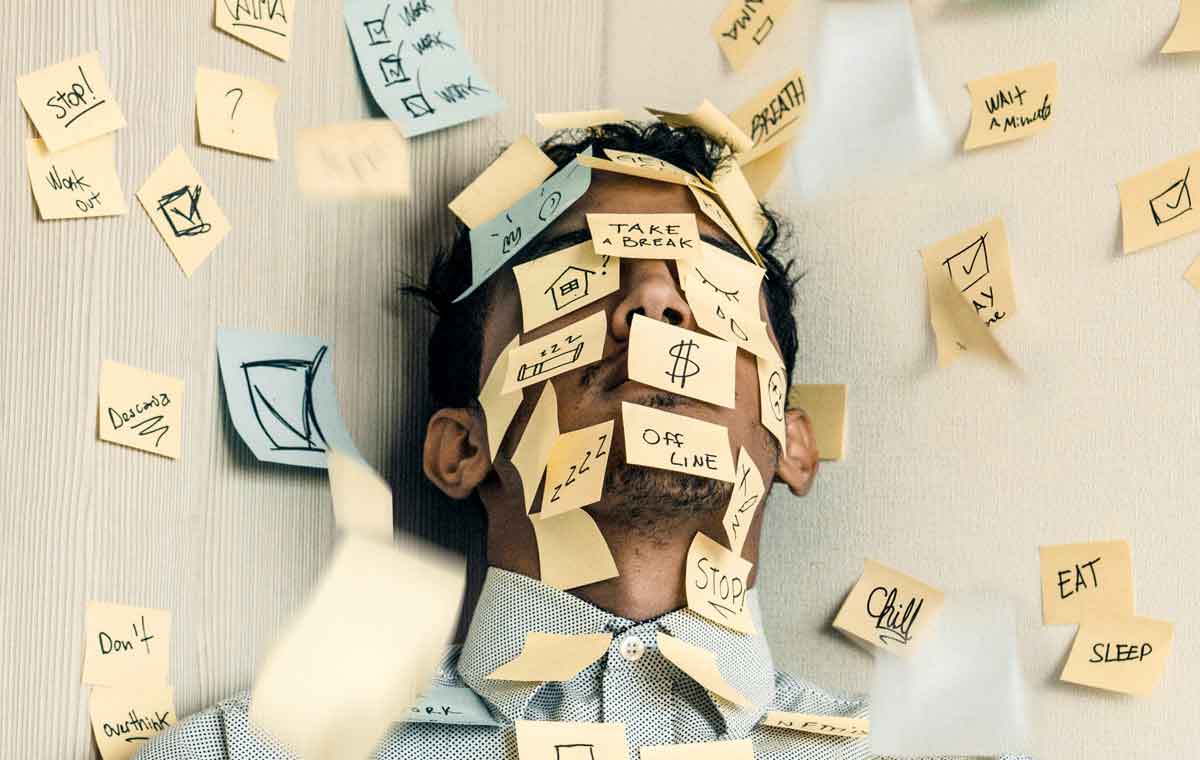The link between ADHD and addiction is significant and serious. Understanding more about the factors behind this connection can offer insights on how to prevent dependency, and how to effectively treat an addiction.
The potential for addiction for people living with Attention Deficit Hyperactivity Disorder (ADHD) is staggering. While the lifetime occurrence of substance abuse among the general population is around 25%, this percentage rises to nearly 50% in those with ADHD. People with ADHD are also more likely to struggle with behavioural addictions such as Internet, shopping, or gambling.
The rise in the potential for addiction for those with ADHD often comes down to two major factors. One is the common attempt to self-medicate in order to manage the symptoms of ADHD, which can include significant anxiety and difficulty concentrating. A second factor is the increased tendency for those with ADHD to seek out new thrilling or pleasurable experiences, along with a desire for instant gratification. These factors can lead to risky choices and ultimately pave a path to addiction.
Being aware of the interplay between ADHD and addiction, and identifying different, healthy mechanisms by which to cope with symptoms or manage potentially problematic tendencies, can go a long way in helping to prevent addiction.
Understanding Attention Deficit Hyperactivity Disorder (ADHD)
Attention Deficit Hyperactivity Disorder (ADHD) is a common mental health condition that often manifests in childhood, but may not be diagnosed until later in life. ADHD impacts focus, attention, energy and impulse control, and can cause significant disturbances in school, work, or social relationships.
ADHD is typically diagnosed as one of three different types of ADHD: inattentive type, hyperactive/impulsive type, or combined type. Inattentive and hyperactive/impulsive types present with different sets of symptoms (with combined type displaying symptoms from both), which can include:
Symptoms of Inattentive Type
- Frequently spacing out or daydreaming
- Being easily distracted
- Trouble following through and finishing assignments, directions or tasks
- Frequently losing or misplacing things
- Being disorganised, both physically and mentally
- Frequently forgetting daily tasks
- Avoiding or disliking things that required sustained focus or concentration
Symptoms of Hyperactive/Impulsive Type
- Difficulty staying seated, or refraining from running or climbing when not appropriate
- Being extremely talkative, likely to blurt out or interrupt others
- Being fidgety
- Showing an inability to do things quietly
- Difficulty taking turns
- Tendency to intrude in others people’s activities, may take over an activity without permission
ADHD symptoms are sustained, and often make engaging in daily activities or responsibilities more difficult. It is not uncommon for people with ADHD to seek out ways to manage their symptoms, either with professional support, or on their own.
ADHD is diagnosed by thoroughly evaluating past and current symptoms, as well as screening for medical problems in order to rule out other possible conditions. A diagnosis is critical in providing better understanding of ADHD, as well as beginning to explore potential treatment options.
ADHD and Types of Addiction
There are different underlying factors behind addiction in people with ADHD, and part of treating the addiction successfully is correctly identifying which factor or factors the addiction is linked to.
Self-Medication to Manage Issues with Focus
People with undiagnosed ADHD often look for ways to manage challenges with focus and attention. Caffeine and nicotine, found in coffee and cigarettes respectively, are mild stimulants that many people feel give them a boost in improving concentration. This can lead to some people with ADHD relying on ongoing, daily consumption to try and manage their symptoms. The health impacts from frequently ingesting large quantities of these stimulants can be severe, and studies on the effects of caffeine on ADHD remain unclear as to the actual benefits.
Some who receive an ADHD diagnosis will receive medication such as Adderall, Vyvanse or Ritalin as part of their treatment plan. While these medications are often effective in managing symptoms, they are also potentially addictive. Following a doctor’s instructions on dosage and how to take these medications is critical in limiting the risk of dependency.
Self-Medication to Manage Stress
ADHD symptoms can cause significant disruptions to a person’s daily life. They can have serious effects on the ability to engage in focused tasks or exhibit appropriate social behaviour, which can negatively impact work or school performance. Additionally, the impulsivity of ADHD can result in poor financial management, causing additional stress and hardship for someone with ADHD. These common stressors may also factor into the increased incidence of addiction as people look for ways to escape feelings of worry, rejection, or self-doubt.
Alcohol is a common substance people turn to in order to alleviate feelings of anxiety or depression, which can be problematic if it becomes frequently used as a method of coping with stress. Sleep aids like Ambien are another tool used in order to fall asleep or stay asleep, which can be challenging for those with ADHD, especially when dealing with stress. These medications are also potentially addictive and have to be used in accordance with a doctor’s care.
Response to a Need for Something New or Exciting
Part of understanding this need and its relation to addiction is being clear on how an ADHD mind works. ADHD brains are uniquely attuned to what is stimulating to the brain, producing a rush of dopamine, a “feel good” neurotransmitter, every time it encounters something new and exciting. The ADHD mind is naturally more geared to internal motivations regarding what is stimulating rather than external demands, which helps explain why ADHD cravings are different from those of non-ADHD minds. In fact, the ADHD brain produces less dopamine for rewards that would be adequately satisfying for non-ADHD brains, which leads people to look for things that offer stronger incentives. These rewards usually are of the types which are immediately gratifying, larger, or repeated.
Gambling, sex, substance use, shopping, and even Internet use can all result in a rush of dopamine that increases feelings of focus, interest and enjoyment. For an ADHD brain, which is already uniquely sensitive to dopamine-triggering stimuli and has a more difficult time deriving dopamine from regular pursuits, engaging in these activities can trigger a dependency.
Treatment for ADHD and Addiction
When someone is working through more than one type of mental health issue, this is called a dual diagnosis. Dual diagnoses require professional support in order to best address the complexities and interactions of these overlapping disorders. For those with a dual diagnosis of ADHD and addiction, a holistic treatment plan is necessary to address the factors driving the addiction, as well as adequately manage the symptoms and stresses brought on by ADHD.
Understanding Your Mind, Taking Control of Your Future at The Dawn
The Dawn Wellness Centre and Rehab Thailand offers professional, compassionate, residential treatment for people who want to overcome addiction and manage their mental health conditions. Our team has years of experience working with dual diagnosis clients, including those with ADHD who also have an addiction.
Our holistic treatment approach combines the most effective psychotherapies with proven wellness practices like meditation, yoga, and fitness training to promote a healthy, active mind-body connection. We work with each patient to develop a customised treatment plan based specifically on your unique needs, and in response to the root causes of your condition.
Call us today to learn more about our treatment approach, and how we can help you find a healthier way forward.
Related Posts
 Dopamine Deficiency – How It Ties Into Mental Health and Addiction
Do you wake up each morning and feel as though there is no more spark in your life? If so, you might have what is known as dopamine deficiency. Dopamine...
Dopamine Deficiency – How It Ties Into Mental Health and Addiction
Do you wake up each morning and feel as though there is no more spark in your life? If so, you might have what is known as dopamine deficiency. Dopamine...
 Knowing the Nuances: Understanding the Differences between ADHD and Bipolar Disorder
When you seek treatment for any mental health condition, the first step is to ensure that you have an accurate diagnosis. For ADHD and bipolar disorder, the presence of some...
Knowing the Nuances: Understanding the Differences between ADHD and Bipolar Disorder
When you seek treatment for any mental health condition, the first step is to ensure that you have an accurate diagnosis. For ADHD and bipolar disorder, the presence of some...
 Could it be Adult ADHD? Recognise the Symptoms
While ADHD is a commonly diagnosed mental health disorder with many options for treatment, it can be overlooked in adults. Knowing the symptoms can help you know if this may...
Could it be Adult ADHD? Recognise the Symptoms
While ADHD is a commonly diagnosed mental health disorder with many options for treatment, it can be overlooked in adults. Knowing the symptoms can help you know if this may...
 Making Your ADHD Work for You: Five Tips for Dealing with ADHD-Related Impulsivity
Facing another massive credit card bill after your enthusiasm for a new pair of shoes led to a full-on shopping spree? Trying to patch things up with your colleague after...
Making Your ADHD Work for You: Five Tips for Dealing with ADHD-Related Impulsivity
Facing another massive credit card bill after your enthusiasm for a new pair of shoes led to a full-on shopping spree? Trying to patch things up with your colleague after...






